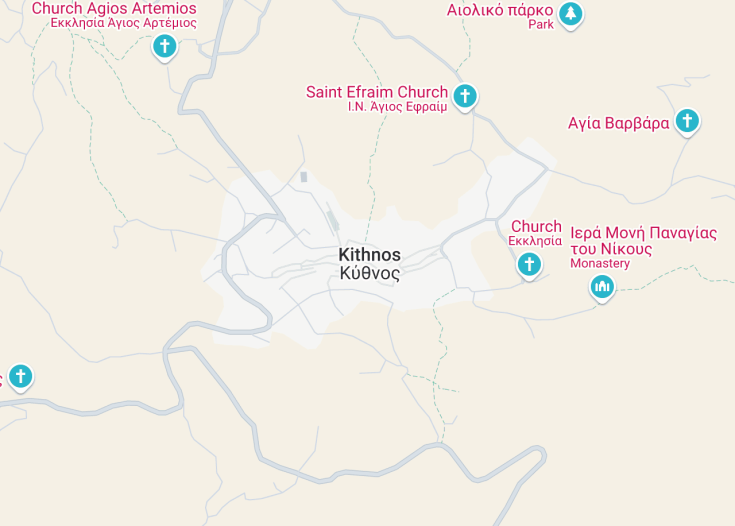Kythnos, a serene gem in the Cyclades, Greece, promises a unique blend of traditional allure and tranquil landscapes. Renowned for its thermal springs, picturesque villages, and unspoiled beaches, it offers a retreat from the bustling tourist paths.
The island’s rich history, evident in its architecture and local customs, invites visitors to immerse in a truly authentic Greek experience. Ideal for seekers of relaxation and cultural enrichment, Kythnos strikes a perfect balance between leisure and exploration.
Before visiting Kythnos, it’s advisable to check the local ferry schedules as they can vary seasonally, ensuring smoother travel planning.
Explore the island’s remote beaches and hidden coves by renting a scooter, providing an intimate glimpse of Kythnos’ charming landscapes.
Top things to do & see in Kythnos
Select the following sights and activities to discover best tickets and tours available in Kythnos.
Kythnos: Unveiling the Serenity of the Cyclades
| Country | Greece |
| Time in Kythnos | GMT+3 |
| Language spoken | Greek |
| Population | 1,456 [Greek National Statistical Service (2022)] |
| Currency | Euro (€, EUR) |
| Airports |
|
Kythnos, a quaint island in the Cyclades of Greece, is a treasure trove of history, culture, and scenic beauty. Known for its traditional villages, thermal springs, and stunning beaches, Kythnos offers a tranquil escape from the hustle and bustle of mainland Greece. The island’s history stretches back to ancient times, with significant archeological sites that provide insight into early Cycladic civilization.
Where is Kythnos?
Kythnos is nestled in the heart of the Cyclades archipelago in the Aegean Sea, part of Greece.
Distances:
| Route | Distance by car | Time by car |
|---|---|---|
| Athens to Lavrio Port | 38 mi / 61 km | 1 hr |
| Ferry from Lavrio to Kythnos | 24 mi / 39 km | 1.5 hr |
What is Kythnos famous for?
Kythnosis renowned for its unspoiled landscapes, traditional architecture, and thermal springs that have been in use since Roman times. The island’s pristine beaches and welcoming atmosphere make it a beloved destination for those seeking peace and authenticity.
History
3000 BC – Early Settlements
The island of Kythnos, part of the Cyclades group in Greece, shows signs of human habitation dating back to the early Bronze Age, around 3000 BC. The earliest inhabitants were likely Carians, followed by the Minoans, the first advanced civilization in the Aegean Sea.
8th Century BC – Ionian Influence
By the 8th century BC, Kythnos had come under the influence of Ionians who introduced significant cultural and economic developments. During this period, the island became known for its excellent pottery and ironwork.
5th Century BC – Classical Period
During the Classical period, Kythnos was a member of the Athenian-led Delian League. The island’s involvement in this alliance against the Persian Empire marked a significant period of military and political activity.
1204 – Venetian Domination
After the fall of Constantinople in the Fourth Crusade, Venetian forces took control of Kythnos, marking the beginning of a new era of Western influence. The island became part of the Duchy of the Archipelago, contributing to its mixed cultural landscape.
1830 – Modern Greece
With the signing of the Treaty of London in 1830, Kythnos became part of the modern Greek state after nearly four centuries of Ottoman rule. This era was marked by the development of the mining industry, particularly iron ore, which significantly impacted the island’s economy and development.
20th Century – Economic Changes
Throughout the 20th century, Kythnos experienced waves of emigration, especially to the United States and Australia, due to economic hardship. However, the late 20th and early 21st centuries have seen a resurgence in tourism, revitalizing the local economy and reconnecting Kythnos with its rich cultural heritage.
Visit Kythnos
What to see and do in Kythnos
Explore the picturesque streets of Chora, the island’s capital, with its traditional white Cycladic houses. Discover the historic Castle of Oria, which offers a glimpse into Kythnos’ medieval past and stunning views of the Aegean Sea.
Relax on the beautiful beaches like Kolona, known for its unique dual beach formation. Enjoy the therapeutic hot springs at Loutra, renowned for their healing properties since ancient times.
Festivals of Kythnos
Kythnos hosts vibrant local festivals, particularly during the summer. The feast of Panagia Kanala in August celebrates the island’s patron saint with traditional music, dance, and food. Another significant event is the Festival of Potato in October, where locals celebrate their agricultural heritage.
Best time to visit Kythnos
The best time to visit Kythnos is during the late spring (May-June) when the weather is pleasantly warm and the tourist crowds are not yet at their peak. Autumn (September-October) is also an ideal time for those looking to experience local cultural events and enjoy the mild Mediterranean weather.
Is Kythnos worth visiting?
Kythnos is undoubtedly worth visiting for its rich historical backdrop, stunning natural landscapes, and vibrant local culture. The island offers a less commercialized Greek island experience, making it a perfect destination for those who wish to explore the authentic Cycladic lifestyle and natural beauty.









